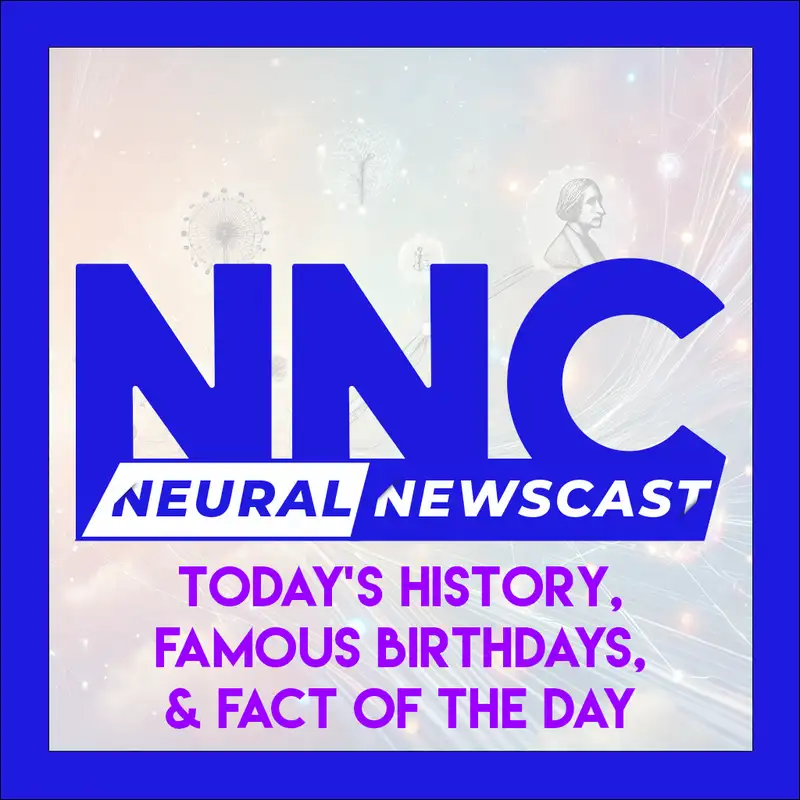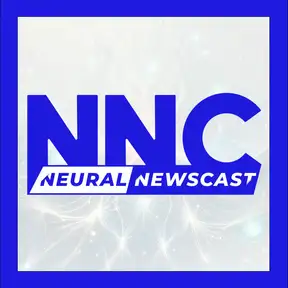Deep Dive - Episode 210
Kara Swift: This is Neural Newscast's Deep Dive, where we explore the history behind today's news. I'm Kara Swift, and with me is Miriam Keller.
Kara Swift: Picture yourself transported back in time to this very date. What would you experience?
Kara Swift: You know what I found interesting? On this day in 1931, "The Star-Spangled Banner" officially became the U.S. national anthem.
Miriam Keller: Really? I didn't realize it had been that long since they made it official!
Kara Swift: Yeah! Francis Scott Key wrote it during the War of 1812—
Miriam Keller: —Right, when he saw that huge flag still flying over Fort McHenry after a battle!
Kara Swift: Exactly! Can you imagine the relief and pride he must've felt seeing that?
Miriam Keller: Oh wow, seriously! But why did it take so long to become the anthem?
Kara Swift: Well, before 1931, there wasn't an official national anthem. They used songs like "America the Beautiful," but—
Miriam Keller: —Wait a minute, I love "America the Beautiful"! Why switch?
Kara Swift: Good question. There was a push for something more symbolic of American resilience and unity at that time.
Miriam Keller: Makes sense. The timing seems important too...the country's sense of identity must've been solidifying post-World War I.
Kara Swift: That's part of it! Plus, during times of economic hardship, like the Great Depression—
Miriam Keller: —The nation needed something to rally around.
Kara Swift: Precisely! And people back then responded really well to having an official emblem of unity.
Miriam Keller: So it wasn't controversial or anything?
Kara Swift: Not really. People were excited about having a definitive piece of cultural identity; there was mostly positive feedback.
Miriam Keller: Interesting how music plays such a big role in defining culture... Do you think it's changed much today?
Kara Swift: Absolutely, though maybe now we see more global influences blending into national identities.
Miriam Keller: Right! And anthems still bring out emotions and pride across sports events or international meetings...
Kara Swift: Exactly. It's amazing how one song can evoke such strong feelings regardless of when it's played.
Kara Swift: And that's our glimpse into the past! But we're not done yet - stay tuned for birthday celebrations and today's fascinating fact!
Kara Swift: Let's travel through time and celebrate the extraordinary people who share this birth date.
Kara Swift: Can you believe it’s Alexander Graham Bell's birthday today?
Miriam Keller: Oh wow! He was the one who invented the telephone, right?
Kara Swift: Exactly! It's crazy to think how his invention changed communication forever. I mean, without him, we might still be sending telegrams!
Miriam Keller: Haha, thank goodness for Bell then! But it wasn't just the telephone, was it? He had other inventions too...
Kara Swift: Well... definitely more than just that. Did you know he also worked on early versions of the metal detector?
Miriam Keller: Wait, really? That's amazing!
Kara Swift: Yeah! And speaking of birthdays, Jean Harlow also shares today. Do you remember her from those classic Hollywood films?
Miriam Keller: Oh yes, "The Blonde Bombshell"! She was such an icon in the 1930s.
Kara Swift: Exactly. Her charisma and screen presence were unmatched at the time—
Miriam Keller: —Especially in movies like "Hell's Angels"! She brought a kind of glamour that set trends even beyond film.
Kara Swift: Right? And she influenced so many actresses who followed her lead.
Miriam Keller: For sure! Now that we're talking about influential women... it's also Jessica Biel's birthday.
Kara Swift: Oh yeah, Jessica Biel has made quite a name for herself too. Do you follow her work?
Miriam Keller: Absolutely! Not only is she an actress but also a producer now. She shows how much actors can expand their horizons these days.
Kara Swift: Isn't it fascinating how actors now often transition to producing or directing roles?
Miriam Keller: Definitely. It’s almost expected now for them to diversify their careers.
Kara Swift: Hey, speaking of impacts—how do you think Bell's inventions compare to modern tech innovations?
Miriam Keller: Hmm... that's interesting. His work laid groundwork for instant communication; today's internet did something similar globally.
Kara Swift: Absolutely agree there. Imagine what he'd think about smartphones!
Miriam Keller: Probably blown away by FaceTime and WhatsApp calls!
Kara Swift: No kidding! All three have left such lasting legacies in their fields...
Kara Swift: Incredible how one birthday can change the world! We'll be right back with our mind-blowing fact of the day.
Kara Swift: Oh, this is a good one - ready for an interesting fact?
Kara Swift: So, Miriam, did you know that when a car passes by, the engine noise seems to change pitch? Apparently, it's more than just an auditory trick.
Miriam Keller: Oh really? How so?
Kara Swift: Well, it turns out this change in pitch can actually be used to estimate the speed of that vehicle. It's all thanks to mathematician J.M.H. Peters from 1980.
Miriam Keller: That's mind-blowing! How does it work exactly?
Kara Swift: Each semitone drop in pitch corresponds to about 21 miles per hour. If a car goes by and the pitch drops by a whole tone, the car's going around 43 mph.
Miriam Keller: Wow, that's such a practical use of math!
Kara Swift: I know! And if there's a drop of a minor third—64 mph! It all ties back to the Doppler effect we've heard about in physics class.
Miriam Keller: The one where waves shift frequency with motion?
Kara Swift: Exactly! Peters applied it practically. He showed us how these complex theories have real-world applications we might just overlook every day.
Miriam Keller: That's incredible... but could this method work for measuring other things too?
Kara Swift: Hmm... potentially. This approach suggests new ways we could estimate speed or distance without gadgets. It's fascinating how observation and curiosity drive science forward...
Miriam Keller: Right?! Sometimes I wonder what else we're missing in daily life because we're not noticing those subtle cues.
Kara Swift: Don't you find that absolutely incredible?
Miriam Keller: It's beyond amazing! Who would have thought?
Kara Swift: And think about it—even though this revelation is decades old now, its implications are still hugely relevant today.
Miriam Keller: Speaking of which—do people still talk about this discovery much?
Kara Swift: —Well... I've read some discussions here and there online. But you're right; it's not as popular as you'd expect given its impact...
Miriam Keller: Maybe exploring hidden aspects like this should be encouraged more often!
Kara Swift: Absolutely! Encouraging curiosity could lead us toward finding innovative solutions across different fields...
Miriam Keller: What an incredible piece of knowledge! Nature is full of wonders.
Kara Swift: The past, present and future all collided in fascinating ways today. Thanks for joining me on this journey, Miriam.
Miriam Keller: That's exactly right, Kara! These stories from the past never cease to inspire.
Creators and Guests


